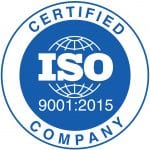
Sustainability
Concern for environment and efforts to reduce carbon footprint.
Adherence to frameworks for management of chemicals
NTCB is an ISO 9001:2015 certified company with the prime consideration to ensuring safe use of chemicals to control the hazards that they present to workers, the community and the environment, our manufacturing facility and laboratories are organized in their approach to the various aspects of chemical use. We have recognized steps in operations where chemical risks may exist – from purchase until disposal – and then have put appropriate measures and controls to reduce or eliminate these risks. A defined mechanism exists to ensure that these risks remain controlled over time, and that new risks are identified before they cause any harm.
NTCB follows all the frameworks and regulations framed by the Government of India for use, storage and processing of chemicals.
We also take into consideration an extra layer of precaution and protection as prescribed by The Global Harmonization System (GHS) drafted by the United Nations to create a uniform system for the classification and ranking of chemical hazards and the methods by which hazard information will be communicated.
Our environmental policy clearly enumerates our belief thatit’s possible to cut emissions with focussed approach to address climate change. Which is why our innovators are striving to enable a continuous reduction in carbon footprint by developing efficient solutions.
Our key focus area is enabling a CIRCULAR ECONOMY based on the principle of reduce, replace, enable, extend and recover. We are committed to create no waste, keep materials in use, leading to more regenerative and restorative systems. We know this is a time taking initiative and requires an all-round collaborative effort across the organisation.
We are working to make our production techniques and product chemistry greener and finding ways to become more sustainable internally and externally – in terms of single plastic consumption, paper consumption, and recycled packaging.
A commitment for sustainable future.
NTCB is an environmentally conscious organisation. To ensure effective implementation of this consciousness we adhere to many international standards and regulatory frameworks.
We represent some of the best producers of speciality ingredients, from around the globe, in India. Our associations give us the advantage to bring world class personal care ingredients to India, catering to varied skin & hair care applications. Our portfolio boasts of a comprehensive range of actives, exotic oils, multi-functionals, butter & waxes and other such products that add significant value during the formulation development process.
Textile Processing Aides
The textile industry is under increasing pressure to minimize its impact on the environment and improve sustainability of supply chains. The use of hazardous chemicals in the manufacturing process that are discharged into waste water is under particular scrutiny. ZDHC program supports the implementation of sustainable chemistry and best practices in the textile, leather and footwear industries to protect consumers, workers and the environment.
Through collaborative engagement, standard setting and large-scale implementation ZDHC advances the industry towards zero discharge of hazardous chemicals.
The Global Organic Textile Standard (GOTS) is recognised as the world’s leading processing standard for textiles made from organic fibers. It defines high-level environmental criteria along the entire organic textiles supply chain and requires compliance with social criteria as well.
Only textile products that contain a minimum of 70% organic fibers can become GOTS certified. All chemical inputs such as dyestuffs and auxiliaries used must meet certain environmental and toxicological criteria. The choice of accessories is limited in accordance with ecological aspects as well. A functional waste water treatment plant is mandatory for any wet-processing unit involved and all processors must comply with social criteria. The key criteria of GOTS, its quality assurance system and the principles of the review and revision procedures.
Personal Care Ingredients
Ecocert is the world’s leading specialist in the certification of sustainable practices. Cosmos certification allows organic or natural cosmetics to be commercialized worldwide.
A beauty care product is COSMOS ORGANIC certified only if:
• 95% minimum of the plants it contains are organic
• At least 20% of organic ingredients are present in the total formula (10% for rinse-off products)
• Water or minerals are not regarded as “organic” for they are not from agriculture. Since water is a major component of numerous cosmetic formulas, it implies a dilution of the proportion of organic ingredients out of the total of the product. Thus a massage oil which does not contain water may display up to 100% of organic ingredients.
Our Commitment to Regulatory Compliances
It is the strictest law to date regulating chemical substances and affects industries throughout the world.
REACH is an international regulation (drafted and implemented by the European Union)which requires downstream users to ensure that their customers (for example, other industrial enterprises and consumers) have the information they need to be able to use their products safely. Distributors are obliged to ensure that all relevant substance safety information is provided with the preparations and articles that they sell and that there are no restricted substances in the products that they sell.
If a textile article carries the STANDARD 100 label, you can be certain that every component of this article, i.e. every thread, button and other accessories, has been tested for harmful substances and that the article therefore is harmless in human ecological terms.
Numerousregulated and non-regulated substances, which may be harmful to human health, are taken into account. In many cases the limit values for the STANDARD 100 go beyond national and international requirements.
The most important APEOs for the textile industry are NPEOs and OPEOs due to their detergent properties. APEOs are usually present in detergents, cleaning agents as well as other chemicals used for textile or leather production.
NTCB does not use APEO in the manufacture of any of products. APEOs have hormone disruptive properties and they are toxic to aquatic organisms. They degrade by losing ethoxylate groups and eventually form extremely harmful Nonylphenol or Octylphenol (NP/OP). NP mimics oestrogen, a human hormone and this has been found to cause hormonal disturbances in aquatic life.
SUSTAINABILITY
How does it work?
A culture of well-established SOPs and Flow Management Worksheets runs through the organisation and those are followed rigorously. SOPs are reviewed from time to time to keep up with the latest benchmarks in the industry.
Our unflinching commitment to ethical and sustainable operations drives initiatives towards continuous improvements in health, safety, and environmental performance. Our objectives are centered on the safety of our employees,the public, and the environment, as well as ensuring regulatory complianceand the safe use of our products.
Our manufacturing plant is equipped with state-of-the-art preventive and safety measures against accidents. We are dedicated to manufacturing productsthat are strictly in compliance with ISO 9001 and REACH (EU) standards. Wewill continue to actively participate in ensuring tomorrow’s world is safer andmore liveable for everyone.
Certifications
Chemical Brothers conforms to international norms for quality, safety, business processes and systems.




